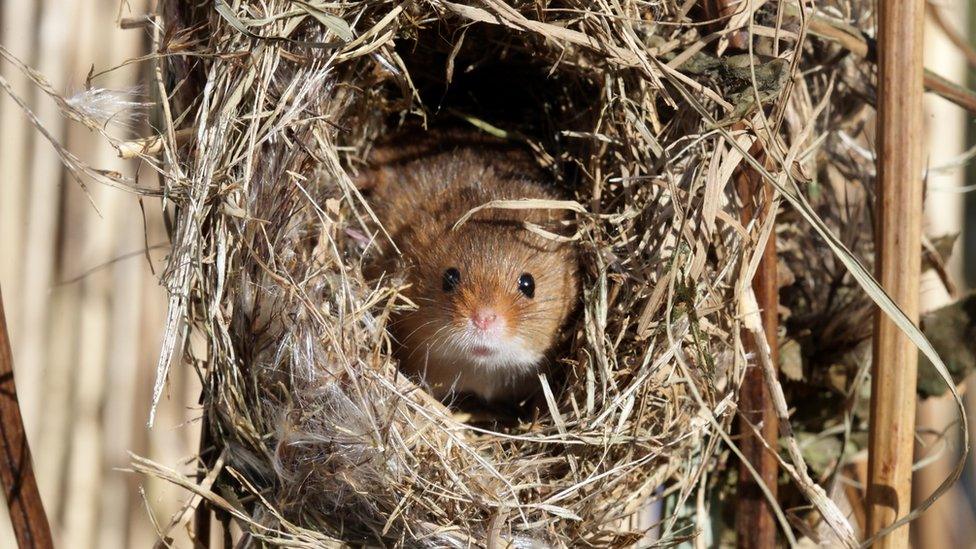The first National Harvest Mouse Survey is a success
- Published
- comments

Over the past year, people up and down the UK have been encouraged to go out and look for harvest mice and their nests.
It's all part of a new national survey by the Mammal Society, which wants to understand more about how many of the furry creatures there are, and where they can be found.
Harvest mice are classed as near-threatened, which means that while they're not currently at risk of going extinct, they could be in the future.
1 Not Evaluated
2 Data Deficient
3 Least Concern
4 Near Threatened
5 Vulnerable
6 Endangered
7 Critically Endangered
8 Extinct in the Wild
9 Extinct
The Mammal Society wanted to develop a way to monitor harvest mice around the UK so they can create a conservation management plan.
Wildlife conservation is when people protect plant and animal species and their habitats - where they live.
Experts say the harvest mouse can show them how healthy an ecosystem is.
An ecosystem is an environment where plants, animals and other organisms all live and interact with their surroundings.
Because the furry friends are found mainly in farmland, any decline to their numbers are thought to be caused by changes in farming practices.
For the past 30 years, an average of 69 nests were recorded, but during the National Harvest Mouse Survey 2021-2022 around 1,500 nests were recorded.
The survey showed the harvest mice nests were most likely to be found at the edge of farmland or at the sides of roads
Harvest mice were also recorded in Scotland for the first time!
The survey also showed that harvest mice nests are most likely to be found at the edges of fields or at the side of the road.
But in order for experts to really understand and help the humble harvest mouse, these sorts of surveys need to happen year-on-year.
The Mammal Society says it plans on repeating the survey to help increase the knowledge about the mice.
- Published22 August 2022
- Published29 September 2022
- Published5 July 2023
